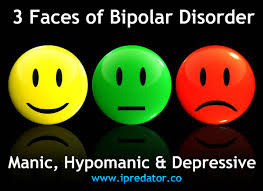Hypnosis Hypnotherapy Whitby Scarborough Filey Bridlington Pickering Malton Market Weighton Driffield York Guisborough Redcar Saltburn Middlesbrough Thirsk North Yorkshire UK

Treatments
Turning the Corner on Depression
Do you ever feel sad, but can't always understand why?
Lack energy and the desire to take action?
Do everyday events easily get you down?
Has the sparkle gone out of your life?
Hypnotherapy can be very effective in resolving the cause of sadness and a general loss of interest in life.
Depression is a major health problem, effecting at least one in six people at some time in their life. It affects both individuals and employers, through personal unhappiness and reduced productivity.
The total estimated cost to the UK economy of depression through lost productivity is a staggering £105 billion a year! This sum would pay for almost all of the NHS budget.
The issue is probably under reported, with women twice as likely as men to seek medical help for the ‘blues’.
Depression, anxiety and stress are part of a continuum which can range in severity from mild to severe. They are not always easy for hard pressed GPs to diagnose with any accuracy in a 15 minute appointment. When thought to be a problem the standard approach is medication, which does not address or resolve the underlying cause.
Typically symptoms of depression include: slowness, inactive, self-pity, difficulty with concentration, interpersonal conflict, self-critical, withdrawn and self-protective (often with older people), irritability and anger (more commonly in younger people), worry, feeling on edge (the fight or flight response), muscular tension, avoiding social events, avoiding challenging tasks, avoiding facing family issues ('brushing problems under the carpet'), indecision and procrastination.
Over time, both alcohol and drug use can also lead to depression -a cycle of self-destructive habits being established. Both alcohol and drugs are often used to numb feelings. Gambling can also be a diversionary tactic, distracting the mind from immediate worries but potentially creating more problems later.
As mentioned, depression itself is not black and white but a continuum from mild to severe. To the casual observer, or even the busy General Practitioner, the severity of a depression is not easy to gauge and an individual may be good at hiding their real feelings. They may be reluctant to talk about it (particularly to health professionals) due to fear of stigmatisation.
Unfortunately, there is still something of a stigma attached to depressive illness in some societies - a sense that it is a personal weakness. Thankfully, many famous people have now admitted that they can get depressed – despite their trappings of fame and fortune!
Sometimes the disorder is short-lived and lifts as quickly as it came. At the other extreme, depressions can last many years.
There are varying levels to which sad feelings can affect daily life. Depression is often linked to anxiety and persistent worrying thoughts. Stress can be a contributory factor, either external (e.g. job, relationships, financial) or internal (how one reacts to stressful events).
Depression may have a clearly defined cause e.g. relationship breakdown or bereavement. Otherwise, the cause may be less obvious and perhaps linked to an earlier, often forgotten emotional experience.
A recent event in life can serve as a ‘trigger’ which acts as a subconscious reminder of a forgotten and emotionally charged memory. It is the energy in the stored emotion which creates the anxiety, which then can produce depressive feelings.
Severe physical illness can also make an individual depressed and the advice of your doctor should be sought in diagnosing specific conditions.
Depression is a mental frame of mind which differes from more serious psychotic illnesses. In depression the individual turns inwards, becoming critically introspective. Typically there is some loss of confidence and lowered self-belief. Psychotic disorders are beyond the scope of hypnotherapy.
There are also a number of mental disorders which can lead to depression. These include phobias, anorexia nervosa, alcoholism and drug dependency.
Many depressions arise from ‘free floating’ anxiety which often have deep rooted sources. Once established, such a condition can become habitual or conditioned thinking, automatically influencing feelings and behaviour.
Symptoms
• There is frequently a general sense of sadness which may peak in the early morning.
• Lower energy & lack of motivation
• Slower thoughts & physical movements
• Loss of interest in work &/or leisure pursuits
• Poor concentration & irrational thoughts
• Guilty feelings
• Tearfulness
• Procrastination &/or indecisiveness
• Early wakening & poor sleep patterns
• Pessimism
• Thoughts of death
• Poor personal hygiene
• Weight loss or weight gain
• Decreased sexual drive
• A withdrawal from social life
• Being self-absorbed
Personality can play a part in creating specific symptoms, particularly how the depressed person feels about themselves and their level of self-esteem, self-belief and confidence.
Bipolar Disorder
 Bipolar Disorder (previously called Manic Depression) is a condition in which the person alternates between levels of elation (raised mood) and periods of depression. The extent of the 'highs and lows' and their duration can vary on a spectrum and may, or not, have an effect on aspects of an individual's life.
Bipolar Disorder (previously called Manic Depression) is a condition in which the person alternates between levels of elation (raised mood) and periods of depression. The extent of the 'highs and lows' and their duration can vary on a spectrum and may, or not, have an effect on aspects of an individual's life.
In it's extreme form the elated mood can severely distort a person's perceptions, such that they may say and do things which are completely out of character. They may for example have a highly inflated view of their abilities, have much greater self-confidence and enhanced energy levels. This can lead to reckless overspending or inappropriate decisions which the individual can later bitterly regret. At the time the high moods appear as 'riding on a wave' and can be very seductive. In practice, however, they are not desirable for the reasons mentioned. It is the nature of full Bipolar disorder that the 'highs' will be followed by 'lows', or in other words: optimism follows pessimism: higher energy levels follow fatigue. The elation phases in full bipolar can sometimes be regarded a psychotic in nature and may need specialist psychiatric treatment with medication.
Bipolar Two Disorder is a sub-division of Bipolar Disorder in which the individual does not experience the substantial (almost psychotic) highs of full bipolar, although periodic depression is still a major effect. For some people they can experience changes in mood over many years and bipolar 2 can also cause chronic difficulties. It might be said that due to the difference in energy swings an individual is not sure who is their true self: the optimist or the pessimist. This can cause many social and employment challenges.
The 'high' moods of Bipolar 2 are referred to as hypomania, which unlike mania is not associated with psychosis. The duration can vary from four days (the minimum qualification) to many months. Also to qualify diagnostically the individual must have had three or more hypomania episodes in their life-time. The depression phase typically follows a similar pattern and duration. However, Bipolar 2 is not easy to diagnose by clinicians, despite being more chronic and often long-live compared to full Bipolar Disorder. Because it can be a life-long condition from early adulthood it can potentially cause significant social and economic damage to the individual. Depression is the most unpleasant aspect of the condition.
Any form of bipolar often begins to show in the late teenage years. It is thought to be due to a combination of genetic influences (a predisposition) and earlier life traumatic emotional (or stressful) events which trigger the predisposition genes. Personality plays a part too, just as there are people who are full of nervous energy and appear to be on a permanent high.
The main features of the Hypomania phase can include:
• Enhanced self-confidence
• Reduced need for sleep
• More talkative than usual
• Feeling in a good mood
• Happy with oneself
• Quick thinking & optimistic
• Over-estimate abilities
• Ambition beyond realistic possibilities
• Flights of fancy
• Unrestrained and unnecessary spending
• Financial impropriety in investments
• Sometimes sexual indiscretions
Hypomania can go unnoticed to the untrained eye.
Full-blown mania in Bipolar extends beyond the above. It will be more severe, disruptive and even dangerous to an individual's lifestyle.
The main features of Depressive episodes can include:
Reduced interest in daily activities
Possible weight gain or loss
Insomnia or broken sleep
Lower personal care
Reduced physical and mental energy
Lower self-esteem and confidence
Slower thinking
Pessimistic outlook
Reduced motivation
Focus on past regrets
Self-critical
Obviously, both mania/hypomania and depression in Bipolar 1 or 2 are relative and not absolute states.
Hypnotherapy can assist in addressing Bipolar 2 by levelling out the high and low phases.
Alan Gray has a particular interest in Bipolar 2 Disorder.
Treatments
Both depression and anxiety tend to be undesirable unconscious habits with a negative focus. The unconscious mind automatically seeks evidence to reinforce reasons for feelings anxiety or depressed - a self-perpetuating response which maintains and strengthens these 'dis-eases'.
The usual medical intervention is a course of antidepressant medication or other mood-leveling drugs, as prescribed by a medical practitioner, usually your GP. Some patients can experience unpleasant side-effects from certain antidepressants, and there is a move towards other forms of treatment, hypnotherapy included.
Depression, anxiety, panic attacks all respond well to methods of self-awareness - leading to better communications between the conscious and unconscious minds. Hypnotherapy facilitates this process, restoring harmony and balance.
It is important to gain an understanding of the emotional content of depression, such as the commonly held belief 'I am not good enough'. Clearly there may be life events, past and present, which first initiated and later triggered depressive thoughts.
These could be relationship issues, family loss, bereavement, divorce, unemployment, financial difficulties, health problems and so on. The importance of building a stronger self-image and a belief in yourself is central to leaving behind depressive thoughts and negative self-talk.
Confidence building is an important element. In every hypnotherapy session there will be a one-to-one talking part, which is then followed by hypnosis.
Equally practical day-to-day activities to counter the depression installs an active strategy. This begins to allow the old depressive and negative habits to gradual lose their strength.
Alan Gray is sensitive to the needs of depressed clients and has considerable insight into the nature of depression. He understand it can be a debilitating conditions. However he is optimistic that it can be overcome and the sun will shine again.
Hypoanalysis
 This is a natural hypnotherapy process to address the root cause of a depression. Once the cause is identified the factors creating the depression are dissapated.
This is a natural hypnotherapy process to address the root cause of a depression. Once the cause is identified the factors creating the depression are dissapated.
The client has a greater sense of insight into the condition. Once this self-awareness is enhanced, the depression will be replaced by a more optimistic outlook.
Hypnoanalysis normally takes 5 – 8 weekly sessions over a similar number of weeks.
Suggestion hypnosis
Powerful positive suggestions can also be made under hypnosis which help reduce stress and build self-belief and confidence. These develop calmness and relaxation, as old negative habits are replaced by positive expectations.

Across Scarborough Whitby Filey Hunmanby Seamer Bridlington Pickering Malton York Middlesborough Stockton Redcar Saltburn Guisborough Market Weighton Driffield Thirsk Kirkbymoorside Helmsley Kingston upon Hull Teesside East Yorkshire North Yorkshire and the North of England
Making an Appointment
We provide a Free and informal Initial Appointment (30 minutes) if requested to discuss your personal needs and establish if we can help. Please feel free to bring a friend along for company if you wish.
Please note:
If you telephone and we are with a client, you may be directed to leave a message. Please give your name and telephone number and a suitable time to call you back. Due to the confidential nature of our work, Alan personally takes all appointment bookings.
Hypnosis Whitby Hypnotist Filey Hypnotherapy Bridlington Hypnosis Pickering Hypnotist Malton Hypnotherapist Driffield Hypnosis North Yorkshire
Personal Development for Health & Success
Natural Relaxing Liberating
Scarborough Hypnotherapy –
the specialist in helping you
Become the Person You Want To Be.
Scarborough Hypnotherapy has no control of and accepts no responsiblity for the content and products of websites external to the Scarborough Hypnotherapy website.
© Copyright Alan Gray Scarborough Hypnotherapy Practice 2006-17. All rights reserved.